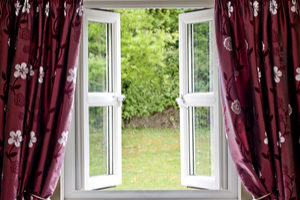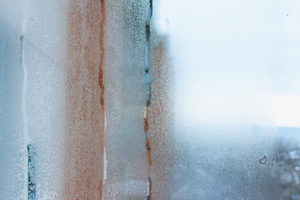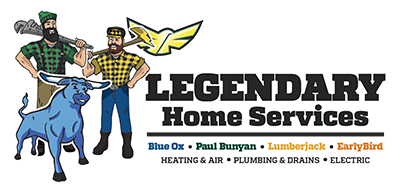When the same old air sits in an enclosed space for an extended period of time, it starts to get stale. Dust, bacteria, mold, and particles from gas and steam all stay in air, polluting it over time. If your home doesn’t continuously exchange stale air for fresh air, you wind up inhaling all that dirty stuff. See what we did there? Enter the air exchanger.
Air exchangers work by circulating stale indoor air out of your home and circulating in fresh air from outside. Exchangers use one fan and vent system to blow indoor air outside, while another sucks fresh air in. Air exchangers are a great solution to indoor air quality problems–especially when the cold forces you to stay indoors. Here are the top four reasons why you should consider having an air exchanger installed today.
Fresher Air

There’s no avoiding it–some pollutants are naturally going to leech into your home’s air. The typical home produces all kinds of airborne pollutants. Every time you cook, shower, using heating or cooling, clean, or even breathe, you’re releasing pollutants into the air. In fact, according to the EPA, indoor air is often more polluted than outdoor air, even in big cities! Indoor air pollution is always gross, but it actually becomes a health risk if your home lacks adequate ventilation. Air exchangers help provide that ventilation.
Home air exchangers help solve indoor air pollution problems in the most direct way possible. One of the exchanger’s two fans continuously sucks indoor air through your ventilation shafts and outside. The exchanger literally pushes air away before it has the chance to become stale. Meanwhile, the other half of the exchanger continuously pumps fresh air into your air ducts directly from outside. The result is fresher, cleaner air for as long as your exchanger runs.
Cleaner Air
Sure, indoor air gets dirty easily–especially during the winter–but is outdoor air really that much cleaner? For all the pollutants in your home, surely there have to be more lurking outside. Is it really such a good idea to force outdoor air into your home over and over again? It’s a fair question, and also one that a good air exchanger will have accounted for.
Before outdoor air it supplies enters your air ducts, an air exchanger passes it through a filter. The air exchangers’ filter catches pollutants, trapping them in place while the air moves in. Only the fresh outdoor air moves through your home; the particles it had been carrying get left behind. Air exchangers filter all the air they supply. Just remember to switch out the filter from time-to-time, and the exchanger will supply air that’s fresh and clean.
Prevent Allergies
Think about it: most common allergens are airborne. Dust, mold, pollen, dander–all that junk floats through the air! We tend to worry about allergens a lot outside, but we often neglect the ones in our homes. Airborne allergies can be a serious problem–especially for those of us with asthma or other respiratory conditions. Just like other pollutants, allergens affect homeowners more the longer they’re allowed to hang in the air. Fortunately, also like other pollutants, air exchangers offer a solution.
When air exchangers push the stale air out of your home, they’re pushing out allergens, too. All the pollen, dander, and dust hanging in clouds over your head gets vented outdoors. As outdoor air comes into the home, the air filter in the exchanger catches any allergens it contains. Your home becomes a refuge from allergens, instead of a haven for them.
Control Humidity
We’ve talked at length about humidity in your home before, so we won’t bore you with the details. Suffice to say, uncontrolled humidity indoors can cause all kinds of problems. Humidity builds up in homes for all kinds of reasons–including inadequate ventilation. If you produce hot air and that hot air has nowhere to go, it’ll sit in your home. The longer it sits, the more moisture it’ll collect, and the more humid your home will get.
Air exchangers can’t address the reason why humidity builds in your home, but they can push moist air away. As air starts to grow too moist, your air exchanger will cycle it out and replace it. Cool, outdoor air generally has lower pressure and humidity than indoor air. By continuously cycling the air in your home, your exchanger can help you maintain a humidity equilibrium.
Air exchangers alone are not a magic bullet for your home’s air quality. While they can continuously introduce fresh air and cycle out old air, they can’t address underlying problems causing pollution. Consider an air exchanger an invaluable part of your larger HVAC system.
Another invaluable part of that system? Having the support of a team of professionals. Professionals like us. Whether you’re having problems, looking for an air exchanger, or you just have questions, the team at Blue Ox is ready to help. Enjoy your fresh air!





